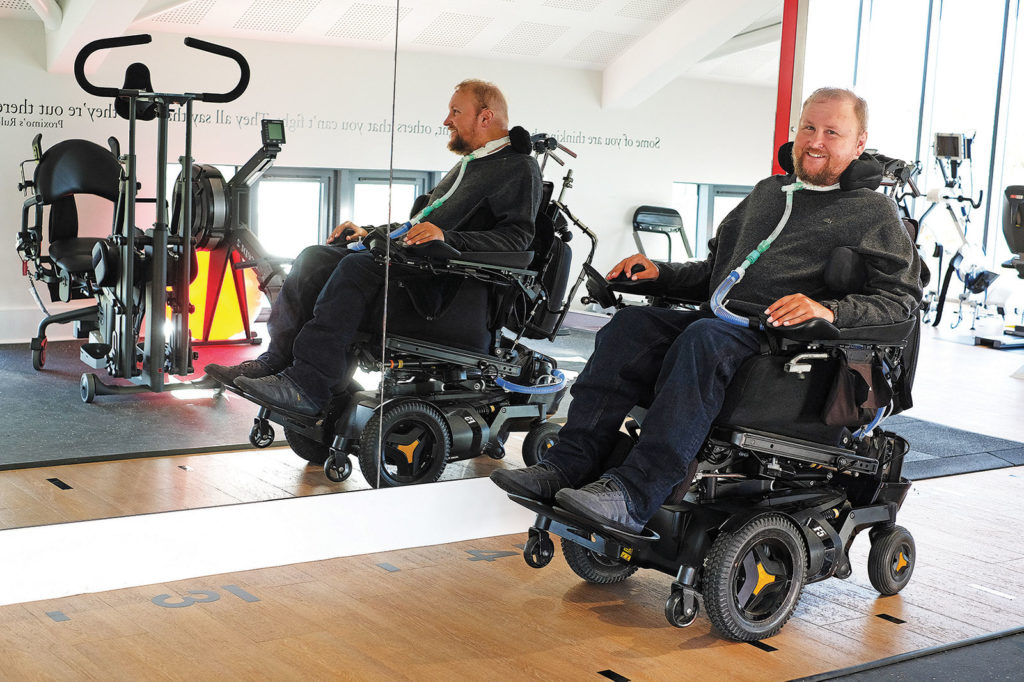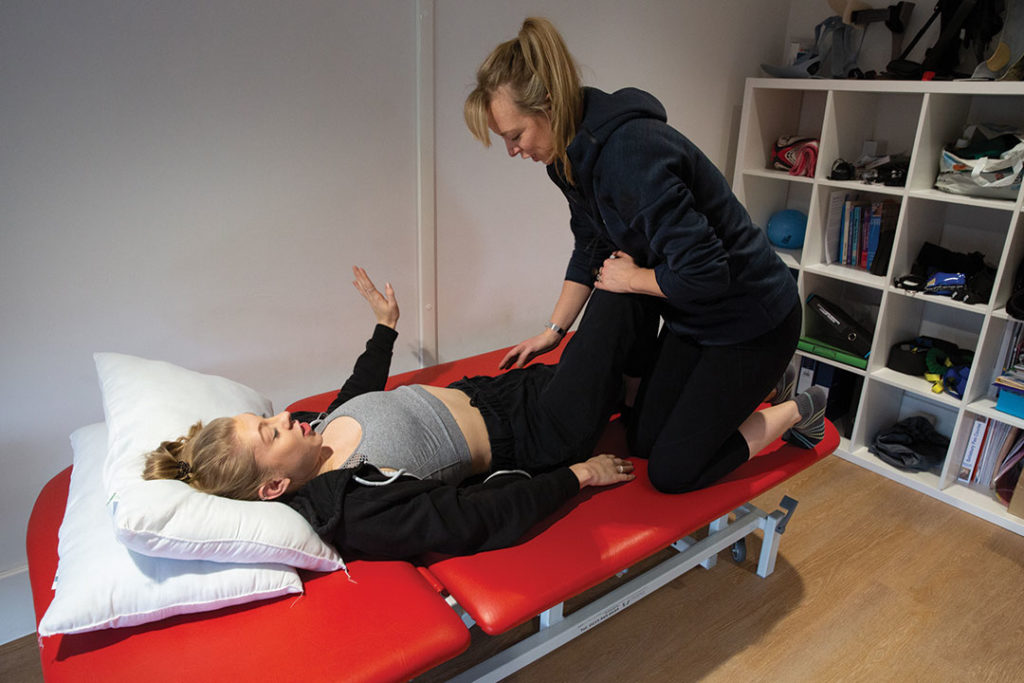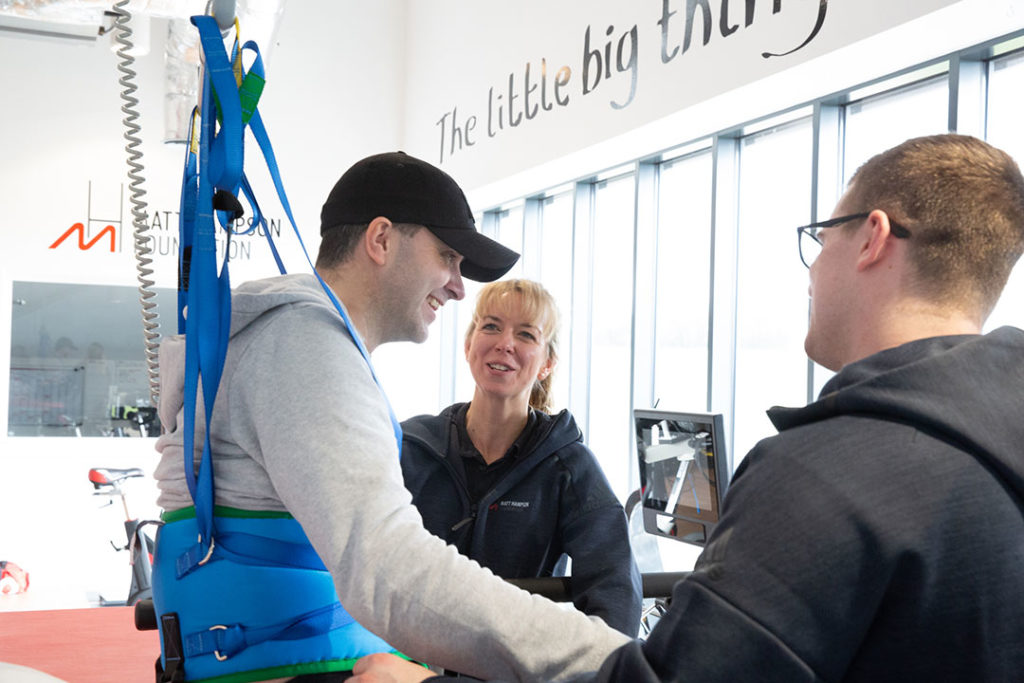The Matt Hampson Foundation inspires and supports young people seriously injured through sport both through its unique Get Busy Living centre in rural Leicestershire and through the provision of financial assistance for its beneficiaries to access specialist equipment for their recovery.
The centre opened its doors in 2018 and is the brainchild of founder and ex-England and Leicester Tigers rugby player Matt Hampson, who himself experienced a life-changing injury in 2005 leaving him paralysed from the neck down, aged just 20.
The Get Busy Living centre is a truly inspiring place which welcomes beneficiaries and their families from all over the UK, providing access to the kind of holistic support that is key in helping them to overcome the challenges they face.

The centre has a state-of-the-art gym, a specialist disability personal trainer and highly experienced physiotherapists to provide beneficiaries with physical rehabilitation. Matt and other seasoned beneficiaries provide the kind of advice that can only really be given by those who have lived through a life-changing injury. This focus on enhancing the mental well-being of individuals as well as their close family is what makes the centre such a unique place.

Building a sense of community really is central to the Matt Hampson Foundation. In the aftermath of an incident which leads to a life-changing injury most people and their families feel isolated with an overwhelming sense of loss for what has been taken away from them.
By becoming part of the community that Matt has created, beneficiaries are able to draw on the experience and knowledge of people who have been on the same journey. They develop the tools and skills they need to move on as they start to rebuild their lives. The centre becomes a place where they can feel normal again and be part of a strong and active social scene as they retrain themselves to focus on what they can do – not what they can’t.
Eventually beneficiaries progress to the point where they become the ones providing the support to others. This in itself is a huge part of their rehabilitation and being able to help others provides a real sense of purpose and identity.

